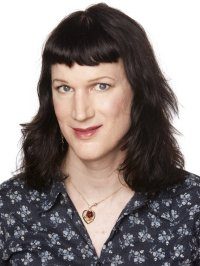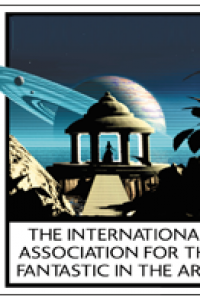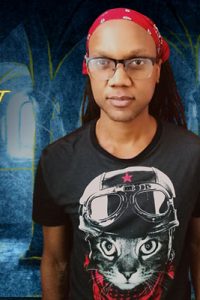Wesley Chu: Timelines

Wesley Chu was born September 23, 1976 as 朱恆昱 in Taipei on the island of Taiwan. His family relocated to Nebraska in 1982, and soon moved to Chicago IL. He studied computer science at the University of Illinois, graduating with a management information systems degree and working for a consulting company and dotcoms before spending ten years working on banking systems. An accomplished gymnast and martial artist, Chu has also worked as a stuntman and actor, appearing in films and on television. He became a full-time writer in 2014.
Debut novel The Lives of Tao appeared in 2013, launching the Tao series of humorous SF novels, which includes The Deaths of Tao (2013) and The Rebirths of Tao (2015). The Io spin-off series is forthcoming, with The Rise of Io scheduled for 2016. His latest novel is Time Salvager (2015), first in a planned time-travel trilogy. Time Salvager was optioned for film before it was even published, with director Michael Bay attached.
Chu was a finalist for the Campbell Award for Best New Writer in 2014, and just won the award this year. He lives in Chicago with his wife, attorney Paula Kim.
Excerpts from the interview:
“I’m the most independent of my siblings, and I’m also the black sheep. Not in terms of behavior, but I’ll do things they don’t want me to do. My parents have been trying to convince me to not do anything artistic or athletic for the past 30 years. It was all about being a good student and not getting distracted by the ‘other’ stuff. Other stuff being just about everything else. Except violin. That was okay.”
…
“I didn’t know much about the industry until I got published – I didn’t know there were conventions, and I didn’t know what Worldcon was. I knew what a Hugo Award was, but I didn’t know how you won one. This whole thing was new to me until Chicon in 2012. I was that guy in a cabin in the woods for a long time – I was this ghost hovering around cafés in Chicago. I’d pick a new café to write in every month, so for one month I’d sit in that café. All the waitresses would think I was weird. I’d order a bottomless cup of coffee and abuse the shit out of that policy. Writing groups never worked for me, partly because it’s hard to workshop a novel. It was a pretty lonely existence until Worldcon happened. It never occurred to me to look online, and there are communities online. At Worldcon I introduced myself to everybody. It worked.”
…
“I have a thing where I dream up my plots. It’s cool. I’ve dreamed up four of my plots now. For The Lives of Tao it wasn’t so much a dream but the alarm clock ringing. I was doing the whole rolling around in bed thing. Basically I imagined that the alarm clock was an alien telling me to wake up and work out. From there I slowly expanded the concept. The Lives of Tao is a late coming-of-age story. It won the Alex Award, which is for adult fiction that’s good for teens. It’s about a guy who finds himself and reaches his potential, but not until he’s 30 years old. At the time I was very unhappy with my career. It was one of those corporate jobs where I was in a cubicle. The walls were carpeted red and blue. I was very unhappy with what I was doing with my life. That’s why I started writing. I followed the same journey that Roen Tan does. By writing his story, I found myself. I’m basically Roen Tan. It’s probably the most honest story I’ll ever write. I even have a lot of his mannerisms. When my dad first read the story, he was like, ‘It’s a good story, son. He’s likeable but not too likeable. Was he modeled after you?’ Roen’s a little whiny at first.
“The trilogy follows Tao, the alien, and Roen and his family. I showed my dad everything. I said, ‘Edit this!’ The one thing I lost out on when I didn’t become an English major is that my grammar is terrible. I was a technical guy. I never had to write a full sentence! My dad went through several rounds of edits for me. I really appreciated that. Now I realize I’ve gotta pay people to do those things. My wife will divorce me if I make her do another round of editing. She’s like, ‘I work 50-60 hours a week.’ An attorney does a lot of editing anyway. The last thing she wants to do is edit my shit.”
…
“Time Salvager is set in the 26th century. Mankind has colonized the solar system, but we’re slowly running out of resources. They use time travelers called ‘chronmen.’ These travelers go back to what they call ‘dead end’ timelines, to moments before a disaster happens. They grab the resources, power sources, relics, and then they jump back out. The explosion happens, and it covers their tracks. The most important rule is to not affect the timeline. The problem with this job is that these chronmen see and experience the last terrible moments of all those victims, and they can’t do anything about it. Because of this, a lot of them suffer from PTSD, or they’re suicidal, or they’re alcoholics. We follow a chronman named James Griffin-Mars. He’s been doing this work for many years now. On one of his important jobs, he meets a scientist named Elise Kim. In a moment of weakness he pulls her with him back to the present. Because of that, he’s broken the most important time law, and now he’s hunted by the very agency he works for.
“Time Salvager came out in July. As I grew the story, I threw in a few more elements that were near and dear to me. A lot of that is environmentalism. The socialist (I’m really not a socialist) in me comes out a little, writing about corporatism and how it affects modern society. Regardless of time traveling and those things, at the core of the book, it’s a love story. (Tao is a love story too, just in the bromance way.) Russ read Time Salvager and said, ‘I hadn’t figured you out until I read this. You’re a romance writer masquerading as a science fiction author.’ The relationship is where the magic happens.
“Time Salvager was going to be a standalone. I sold it off a partial. I realized about two-thirds of the way through that I wasn’t going to finish the story in one book, so it became a duology. Then I started writing Time Siege, and realized two-thirds of the way through that I still wasn’t going to finish, so now it’s a trilogy. We’ll see what happens. I have a particular story to tell. I have character arcs I want to follow through.”
…
“A lot of authors aren’t aware of their own biases until someone points them out. I wrote The Lives of Tao with a male gaze. I didn’t know any better. Part of it was the character, but all my life I’ve read books with a male gaze. I wrote The Lives of Tao eight years ago. I got dinged for its treatment of women, and I was rightfully dinged for it. I made an effort to be more balanced in the second and third books. I’ve been complimented for that, too. The reader will react the way they want to react. It’s a problem if the author isn’t aware of it: ‘My story’s all dudes! I didn’t realize!’ Or if there are two-dimensional women who are just there to be harassed, or to look like superheroes in spandex. It’s still the author’s decision. Sometimes we’re too close to the story or not aware of the things we’re doing. I think part of it is natural maturing. I view my characters in a more complex way now. The world they operate in is not the world I lived in during my twenties. The relationships are a lot more complex. I definitely use a lot more women in prominent leadership roles now. The world has changed.”
Read the complete interview in the August 2015 issue of Locus Magazine. Interview design by Francesca Myman.





